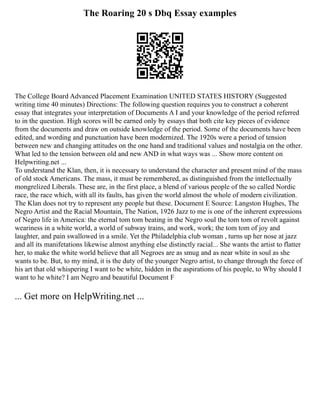When it comes to crafting a compelling college essay, one of the first questions many students face is, “How long should my essay be?” This question often arises because students know that their essay is an important factor in their college application, and they want to make sure they make the most of every word. Writing too much or too little can detract from the essay’s impact. In this guide, we’ll go over what determines the optimal length for a college essay, how to stay within the recommended word count, and how to use tools like a word counter to keep track of your progress.
Why Does Essay Length Matter?
Before discussing specific word counts, let’s talk about why essay length matters. College essays give admissions officers a glimpse into your personality, values, and communication style. They help to flesh out the story of who you are beyond your grades, test scores, and extracurricular activities. However, college admissions officers read thousands of essays each year, so sticking to a set word count allows you to make your point effectively without wasting words or the reader’s time.
The ideal essay length can vary depending on the application type, the school’s requirements, and the specific question being asked. While some schools may be flexible, sticking to the recommended length demonstrates your ability to follow instructions—a key quality that colleges look for in applicants.
General Guidelines for College Essay Length

Most college essays have word count guidelines, often specified in the application instructions. Here’s a breakdown of typical word count expectations for various types of college essays:
- Common Application Essay: The Common App essay, one of the most popular essay types, allows students to choose from seven different prompts and write an essay of 250-650 words. The 650-word cap is generally strict, so students should aim to write close to this length to fully explore their topic.
- Supplemental Essays: Many colleges require supplemental essays in addition to the main application essay. These tend to be shorter, often between 100-400 words, and focus on specific questions about why you’re interested in a school or program. For instance, a “Why This College?” essay might have a 200-250 word limit.
- Personal Statements: In applications where a personal statement is required, the length can vary. Some schools may set a specific word count, such as 500-1000 words, while others might leave it open-ended. Aiming for the midpoint—around 600-800 words—can help ensure your essay is detailed yet concise.
- Short Answer Questions: Some applications include short-answer questions that require even briefer responses, often between 50-150 words. These are designed to give admissions officers quick insights into specific areas, such as your values or favorite activities.
- Optional Essays: Certain schools may offer an optional essay prompt, allowing you to provide additional information or context not covered elsewhere in your application. Optional essays should still follow any length guidelines provided, generally around 250-500 words.
How to Structure a College Essay to Meet the Word Count
Writing an impactful college essay within a strict word count is challenging. A well-structured essay helps make each word count, allowing you to convey your message clearly without unnecessary filler. Here’s how to structure your essay effectively:
- Introduction (10-15% of the word count): Begin with a strong hook that captures attention. Briefly introduce the main topic or theme of your essay, ensuring it connects directly to the prompt. In a 650-word essay, the introduction should be around 65-100 words.
- Body (70-80% of the word count): Use 2-3 paragraphs to develop the main points of your essay. This is where you tell your story, elaborate on your experiences, and connect them to your overall message. For a 650-word essay, each body paragraph could be approximately 150-200 words.
- Conclusion (10-15% of the word count): Wrap up your essay by reinforcing your main point. Avoid introducing new information here. Instead, summarize what you’ve discussed and leave the reader with a final, memorable thought. In a 650-word essay, the conclusion should be around 65-100 words.
Tips for Staying Within the Word Limit
Writing within a specific word count can feel limiting, especially if you have a lot to say. Here are some tips to help you stay within the recommended length:
- Plan Ahead: Outline your essay before you start writing. Decide on the main points you want to include and structure your essay around them. This can help prevent unnecessary tangents.
- Use Precise Language: Be concise in your writing. Eliminate filler words or repetitive phrases that don’t add meaning to your essay. Focus on using specific, descriptive language that conveys your message effectively.
- Show, Don’t Tell: Rather than explaining everything, use anecdotes, examples, and experiences to illustrate your points. For example, instead of saying, “I am a hard worker,” describe an experience where you demonstrated perseverance.
- Trim Excess Words: After you write your essay, go through it and eliminate any words or sentences that aren’t essential. Often, cutting a word here and there can save dozens of words, allowing you to get closer to the target length.
- Use a Word Counter: Keeping track of your word count as you write is important to avoid going over the limit. Many word processors have a built-in word counter that shows your current word count at a glance. Alternatively, online tools are available to help monitor your word count in real time.
Adapting to Different Word Count Requirements
Some students find themselves needing to adjust their essays to fit multiple applications with varying word counts. Here’s how to adapt your essay to different lengths without losing its impact:
- For Shorter Essays (250-300 words): Focus on a single story or idea that answers the prompt. In shorter essays, brevity is key, so zero in on the main takeaway and avoid extensive background details.
- For Medium-Length Essays (400-600 words): Use a slightly more developed structure, incorporating an introduction, a body with one or two examples, and a concise conclusion. This length allows a bit more flexibility to explore your story in depth.
- For Longer Essays (650+ words): Take advantage of the extra space to provide richer details and reflections on your experiences. You can afford to include multiple examples or discuss more than one aspect of your story.
Common Mistakes to Avoid in College Essays
Staying within the word limit is just one aspect of writing a successful college essay. Here are some common mistakes to avoid:
- Overly Formal Language: Remember that the college essay is about showcasing your authentic self. Write in a natural, conversational tone that reflects your personality.
- Straying from the Prompt: Ensure your essay remains focused on the prompt. Going off-topic can make it seem like you’re not attentive to instructions.
- Ignoring Word Count Instructions: Always adhere to any word count limits provided. Writing too much or too little can give admissions officers the impression that you don’t follow guidelines.
- Too Much Background Information: Avoid spending too much time on background details that aren’t directly relevant to the main point of your essay. Focus on the parts that highlight your character and fit within the length constraints.
Final Thoughts
Determining the right length for a college essay ultimately comes down to understanding the requirements and crafting a concise, engaging story that answers the prompt. Following the specified word limit shows respect for the admissions officers’ time and your ability to communicate effectively within constraints. Using tools like a word counter can help ensure that you stay within the limit while making the most of every word. Remember, quality is more important than quantity; a well-crafted, thoughtful essay can leave a lasting impression, even if it’s brief.
Read Also
- Has MrBeast Won Any Awards for His Donations?
- How to Stop Pop Up in Shein
- 30 Best Manga18fx Alternatives In 2024
- What Is the Red Circle Paper Plane Icon on Pinterest?
- LinkedIn for eCommerce: A Comprehensive Guide
